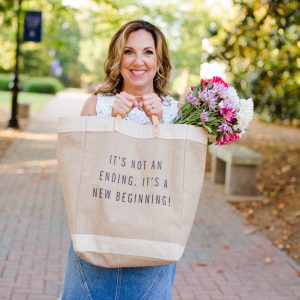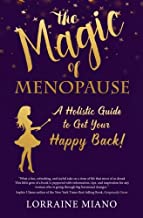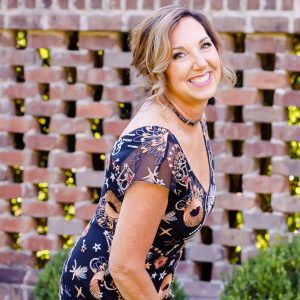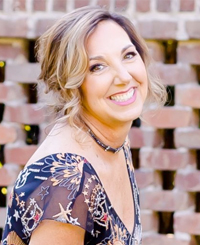You May Not Be “Past That!”
By Lorraine Miano, for the NABBW
The information in this article is provided for educational purposes only. If you have a health concern, please contact your healthcare provider.
 “Oh, I’m past that.”
“Oh, I’m past that.”
When a woman asks me what I do, and this is her response.
The thing is, as a post-menopausal woman, you are far from “past that.”
Let me explain.
As a certified health and hormone coach specializing in menopause, I hear from women in all stages of this natural phase of our reproductive years. Perimenopausal women often don’t even realize they have entered this phase and post-menopausal women often aren’t aware that there is more to menopause than the hot flashes that they are no longer experiencing.
Let’s start with the phases of menopause since many women often come into these years without an understanding of what these are, or how to navigate them. Medical misogyny, unfortunately, surrounds women’s health, and this is especially true for menopause. So, women are often left confused and unsure of what is happening to their bodies.
Menopause, perimenopause, and post-menopause are natural stages in a woman’s life when her monthly period stops; the end of a woman’s reproductive years. This does not take into account surgically or chemically induced menopause. The years between puberty and perimenopause are your pre-menopause years.
Perimenopause is the first stage in this process and can start eight to 10 years and up to 15 years before menopause. It can begin as early as your 30’s.
Menopause is literally just one day…the 12 month anniversary of when a woman’s menses have ceased. The average age for a woman to reach menopause is 51 years old.
Post-menopause begins the day after you’ve reached menopause, and a woman will be in this stage for the rest of her life. That can be between 30 and 50% of her life! That is a long time to be experiencing preventable health concerns.
So why do I say that post-menopausal women are far from “past that?”
If you are a post-menopausal woman (and considering that the youngest baby boomer is turning 57 this year, there is a good chance you are) are you experiencing any of these health concerns?:
- Weight gain/trouble losing weight
- Dry Vagina, Skin, Eyes, Mouth
- Osteoporosis
- Cardiovascular Disease
- Insomnia
- Fatigue
- Urinary incontinence
- Moodiness, irritability, depression, anxiety
- Increased cholesterol levels
- Insulin Resistance
- Night sweats
- Low libido
If so, these are mostly preventable symptoms that come with post-menopause and should be addressed. There is absolutely no need to suffer or feel dismissed by your healthcare provider.
I’ll discuss three of the top concerns here.
Cardiovascular Disease
Did you know that cardiovascular disease is the #1 cause of death for women? Each year 500,000 women die from heart disease in the US. That is one in every three female deaths. For decades, CVD research focused primarily on men (as much of medical research does), leading to an underappreciation of the differences that exist between the sexes. It’s no wonder then that only 56% of women recognize that heart disease is their No. 1 killer. Compared to men of the same age, premenopausal women are relatively protected against CVD due to the hormone estrogen, however, this difference narrows after menopause, when estrogen levels decline. Heart disease risk increases for everyone as they age, but for women, symptoms, if present, can become more evident after menopause, according to Heart.org. An overall increase in heart attacks is seen about 10 years after menopause.
Osteoporosis
Did you know that estrogen is a hormone in women that protects bones? This explains why as women reach menopause, and their estrogen levels decline, they are at a higher risk for bone loss. This coupled with the fact that women’s bones are lighter and less dense makes them more susceptible to osteoporosis. Of the estimated 10 million Americans with Osteoporosis, 80% of them are women. Approximately one in two women over age 50 will break a bone due to osteoporosis according to The National Osteoporosis Foundation (NOF.org).
Insulin Resistance
Estrogen regulates the reproductive system, but it also optimizes insulin activity. During the premenopausal phase, when women are still producing estrogen, insulin resistance is controlled. Once those levels decrease after menopause, low estrogen has been linked to insulin resistance. This is why post-menopausal women tend to gain weight, especially around their belly and midsection. This can lead to an increased risk of developing type 2 diabetes.
It is possible to holistically prevent these health concerns from wreaking havoc on our lives. Paying attention to diet, movement, and stress reduction is crucial during these years. We want to not only live a long life, but we want a long health span vs. disease span.
 Some simple steps to get started are:
Some simple steps to get started are:
- Eat only whole foods: organic fruits, vegetables, leafy greens, grass-fed meats, wild-caught fish
- Eliminate as much as possible: all processed foods and sugars
- Eliminate as much as possible: alcohol and caffeine
- Supplement with Vitamin D3, K2 (to help with calcium absorption), Omega 3, Probiotics, Magnesium, Vitamin B Complex as a good start
- Use Movement daily: weight-bearing exercises to increase bone mass, rebounding on a mini trampoline (proven to increase bone density). Go for daily walks!
- Reduce Stress: Say No! if something doesn’t serve you well, ask for help when needed, use gratitude journaling, deep-breathing exercises, take a Yoga class, use meditation and mindfulness techniques. Put YOU on your calendar and KEEP THE APPOINTMENT for some self-care (massage, facial, etc.)
- Get a good night’s sleep! 7-9 hours.
 These are just a few simple steps to get started. I’ve made it my mission to provide resources and support to women who are navigating this journey. There is absolutely no need to suffer. Feel free to join my private menopause support group: MAKING MENOPAUSE MAGICAL. There’s a whole lotta love in there! Most importantly, please listen to your body when it whispers, so you won’t have to hear it scream.
These are just a few simple steps to get started. I’ve made it my mission to provide resources and support to women who are navigating this journey. There is absolutely no need to suffer. Feel free to join my private menopause support group: MAKING MENOPAUSE MAGICAL. There’s a whole lotta love in there! Most importantly, please listen to your body when it whispers, so you won’t have to hear it scream.
Cheers & Love! XO


Lorraine Miano
Lorraine Miano is an Integrative Certified Health Coach and author of the book, “The Magic of Menopause: A Holistic Guide to Get Your Happy Back!” She is especially passionate about working with women in all phases of menopause, with the clear goal of helping us overcome any weight, metabolism and aging concerns, so we can have more energy, less stress, and feel comfortable in our own skin. Her goal is to help Western women understand that menopause can – and should – be viewed as the time we women come into our own, finally becoming the influential and powerful beings we were meant to be. Lorraine also explains that in non-Western cultures, especially Japanese — but also Greek, Native American, Indian, Chinese, Korean and African — societies, elder women are held in high esteem – and venerated for their wisdom.



Leave a Reply
You must be logged in to post a comment.